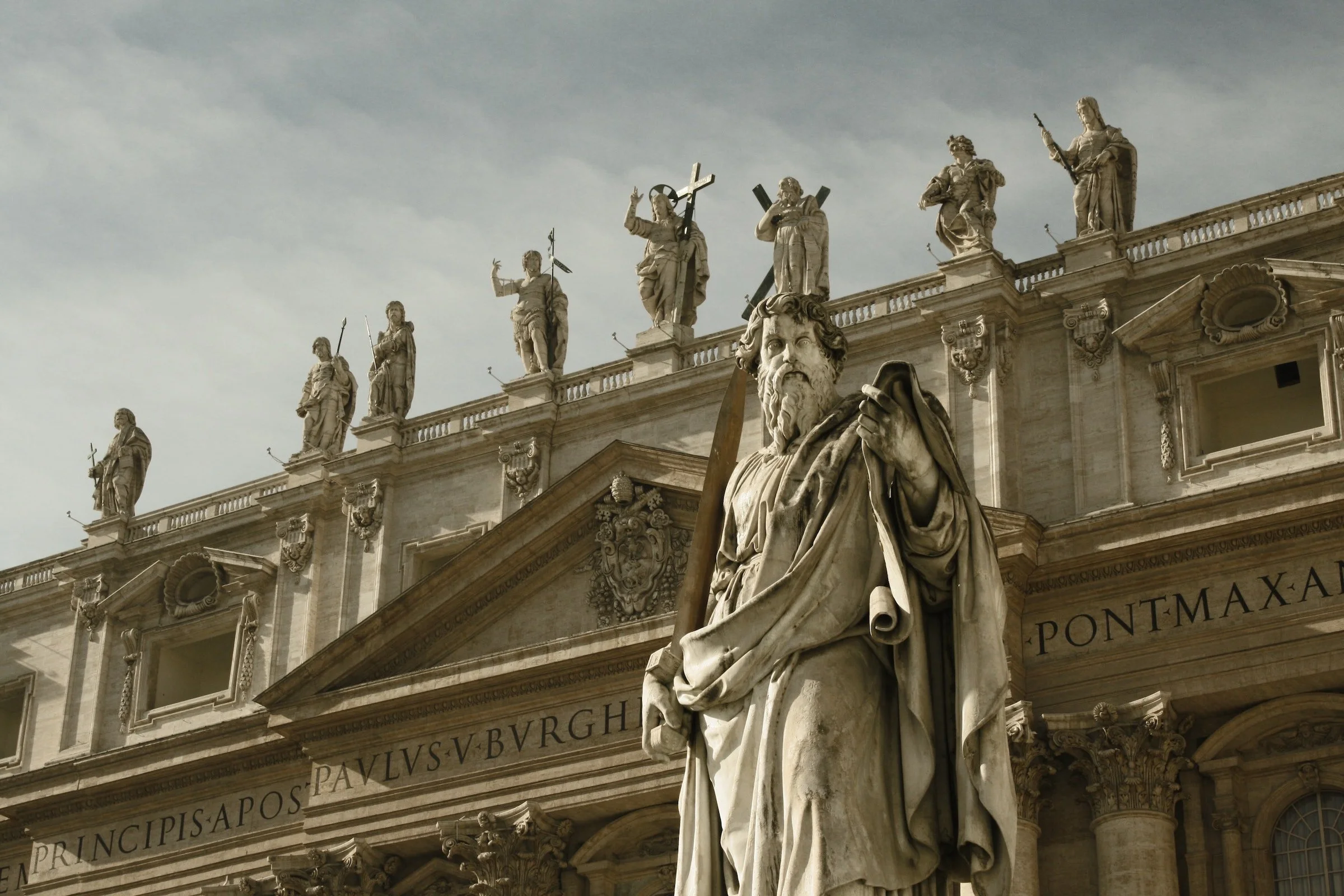
Marketplace Theology
Business as a Calling and Profession: A Historical Review
In this article, Gordon examines the importance of some of the Greek philosophical and historical factors disparaging work and business, against which Protestant notions of vocation subsequently reacted.
Business as Calling and Profession: Towards a Protestant Entrepreneurial Ethic
In this article, Dr. Gordon aims to retrieve the Protestant doctrine of vocation and the related concept of profession in order to affirm contemporary business and guide it in a more ethical and accountable direction.
Blessing God Through Work and Worship
In this article, we are considering just how our work can be worship, as well as how our worship in the gathered life of the church can make the connection between Sunday and Monday. We do this in the light of our definition of marketplace theology, adapting the pithy definition of William Perkins in the 18th century to read: “Marketplace theology is the science of working blessedly forever.”
Toiling Under the Sun: Ecclesiastes and a Biblical Theology of Work
Work is a key theme in the book of Ecclesiastes. It provides a vital counterweight in a fully biblical theology of work, reminding us all our toil under the sin is blighted by the curse and doomed to futility apart from eschatological redemption in Christ.
The WORKER—Trinitarian Work
We have argued in previous articles that a wholistic marketplace theology must deal with the head (which systematic theology caters to), the heart (which embraces the need for prayer and spiritual formation), and the hands (which suggests that theology must be applied). But even more than application, it is in practice that we learn the truth about our work. In this article, we want to apply it to the worker herself. We will consider how the worker is inspired by and actually participates in the work of the triune God, Father Son, and Holy Spirit.
The Snake and the Dove: Life in the Marketplace
Living faithfully in the marketplace is a process of character building and continuous spiritual growth. It is important for Christians to be able to articulate their faith when confronted with marketplace values and demands. Traditionally, church life tends to focus more on the inner or spiritual aspects of its congregation and simultaneously it focuses on the gathering for worship within the church. So we teach the Bible and think about applications. We care for the sick and support families. Seldom do we go deep into how we confront challenges in the marketplace.
Towards a More Biblical View of Matter Towards a Theology of Work
It is not an accident that the Bible begins with a not-so-religious theme – a world of matter! It seems to be preoccupied, not with the creation of the spirit-world, but with a world of matter to be ruled over by humans. A correct theology of matter and the material world must precede a correct theology of work within the confines of that world. The theology of matter as laid down for us in the Bible is thrown into relief as we contemplate the two competing views of matter.
Going to Work with the Professor: Ecclesiastes and Meaning in Human Labour
I am a professor but not like the one who forms the title of the Old Testament book of Ecclesiastes, a person who had enormous influence and a harem! I have been married to one wonderful woman for sixty years. I am calling the author of Ecclesiastes “The Professor” because the Hebrew form, Qoheleth, of the Greek title, Ecclesiastes, is based on the Hebrew word qahal which suggests that he is someone who gathers or convenes an assembly.
I’m a Christian—But Who Am I at Work?
Back in my twenties, when I began working for state government, I struggled with how—as a Christ-follower—I should see myself in that role. By that time I could look back on more than two decades of involvement in local churches. But my church experience had not given me any language that could connect my faith with my role in the work world.
WORK: A Wholistic Approach—Head, Heart and Hands
Work is energy expended, whether manual or mental, purposively—unlike play which simply has the enjoyment of the activity itself as the end goal. Work has as its goal an accomplishment. But actually the distinction between work and play is not that absolute and, as we shall see, later, it is possible to play at work just as we work at play. In this essay we are dealing with work and approaching it from head, heart and hands.
Dualism and Work: The Greek Contribution
It is common for Christians to think about life being divided between the sacred and the secular. Prayer, Bible reading, witnessing and teaching at church are sacred while working, school, (unless it is a Bible Collage) raising children, eating, sleeping, traveling and everything else we do is secular. Similarly, working for the church as a pastor, missionary or youth worker is sacred, while working as an accountant, lawyer or longshoreman is secular. Our body is corrupt and a source of temptation while our soul is redeemed and bound for heaven. Contemplating and worshiping God is sacred but contemplating mathematics, philosophy or how best to do a job is secular.
Towards a Theology of Doing: The Science of Christian Reflection “from Below”
The vision we have for this series of articles on marketplace theology is this: every person in the marketplace could become a theologian of application. But to accomplish this the marketplace theologian must be in the marketplace, and preferably actively so. It is not obvious that one cannot learn well the doctrine in the classroom and do it later. In contrast the best education is education in service. It is transformative not preparatory. And behind this is an important principle of spirituality: the attempt to know God apart from the activities of life is unreal.
The Intrinsic Value of Work: In Light of the Doctrines of Creation, Redemption and Eschatology
The aim of this paper is to provide the theological bases for the intrinsic value of work by considering the doctrines of creation, redemption and eschatology. While noting that all Christian doctrines are relevant for all of life, the discussion in this paper is limited to three doctrines only. These doctrines were chosen for embodying the breadth of God’s action in history from beginning to end. They are important for our purposes because “if we are to understand what human existence is, and what human beings are destined or called to be, we must see these human beings as belonging within the all-embracing coherences of God’s history with the world”.
Introduction to Marketplace Theology - Toward a Wholistic Science of Work, Worker and Workplace
My interest in marketplace theology began quite early, without, of course, even having the language to call it “marketplace theology,” and certainly decades before I became a professor of marketplace theology. As a young boy growing up in Toronto, Canada, son of a CEO of a steel fabrication company producing steel strapping for shipping containers, I received a small weekly allowance with which I could go into a store and buy a vanilla Ice cream cone for five cents.














